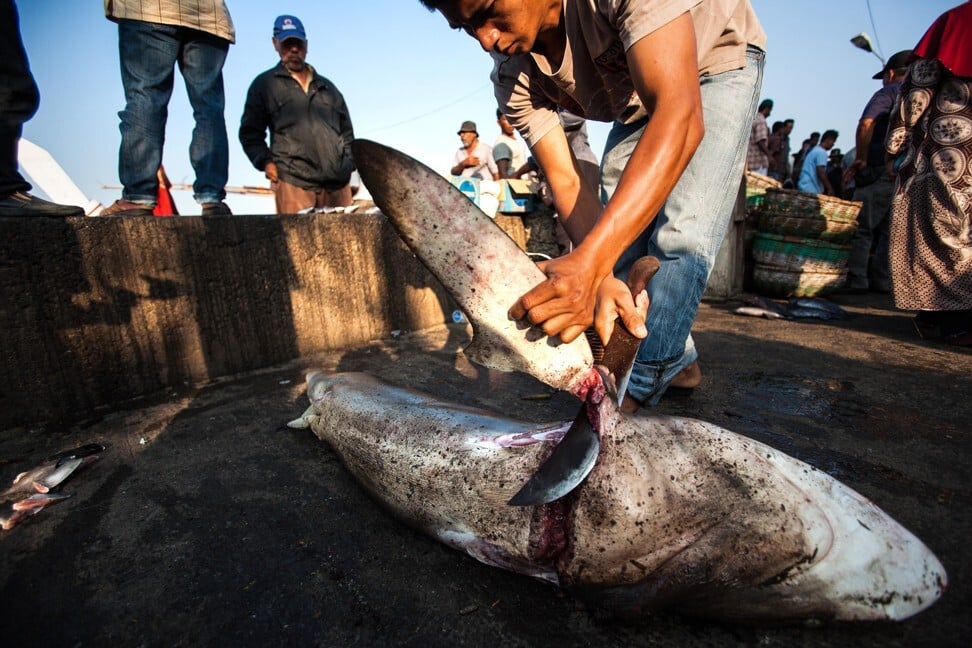
For every fin-free Hong Kong wedding, ‘we can save 24 sharks’
Hong Kong Shark Foundation and online platform Bride Union campaign to banish shark’s fin soup from wedding banquets
Hongkongers Bonnie Li and Hugo To share a love of scuba diving, their underwater adventures allowing them to swim with a variety of marine life, including reef sharks. So in May 2019, when the couple sat down with 50 guests for their wedding lunch at Tin Lung Heen restaurant, in The Ritz-Carlton Hong Kong, the popular wedding dish shark’s fin soup was off the menu.
“I’ve been a wedding planner for a decade and in the past few years have been happy to see restaurants in the city remove shark’s fin soup from their menus,” Li says. “We both love the ocean so at our wedding we wanted to spread the word that people should refuse shark’s fin soup not just at weddings but for all occasions.”
Li says guests were given a lai see packet containing a Mark Six ticket and a shark fact sheet that mentioned their donation to the Hong Kong Shark Foundation (HKSF). Now their story is being used in a campaign by HKSF and online wedding platform Bride Union.
How eco-tourism saved this stunning Cambodian valley
For the Shark-Free Wedding campaign, couples who promise not to consume shark’s fin will receive discounts on wedding services and products, including make-up, photography, gowns and jewellery, an attractive incentive in a city where nuptials are big business. According to online lifestyle business ESDlife, the average cost of tying the knot in Hong Kong is HK$360,577.
Every year, more than 100 million sharks are caught worldwide for fins and other products, with more than 50 per cent traded through Hong Kong. In May, Hong Kong customs officials seized a record 26 tonnes of fins from an estimated 38,500 endangered sharks. The two consignments, valued at about HK$8.6 million, came from Ecuador, in South America.

“In 2018, there were 49,331 weddings in the city. With an average of 17 tables per wedding that’s potentially 204 bowls of shark’s fin soup per event. For each wedding that goes fin-free, we can save 24 sharks,” says Gloria Lai Pui-yin, a senior conservation officer at WWF-Hong Kong.
Global conservation organisation WildAid says the elderly play a big part in driving demand for shark’s fin.
Climate change will cause polar bears to go extinct by 2100: study
The first five months of 2020 saw 538 tonnes of shark fin imported into Hong Kong, 60 per cent less than for the same period last year. Environmentalists hope this trend will continue when Covid-19 restrictions ease.
“Although imports have dropped significantly, and there are an increasing number of fin-free options on menus, when social restrictions ease, it’s important that everyone remains conscious of their dining choices and says no to shark fin,” says Laurence McCook, head of Oceans Conservation at WWF-Hong Kong.

